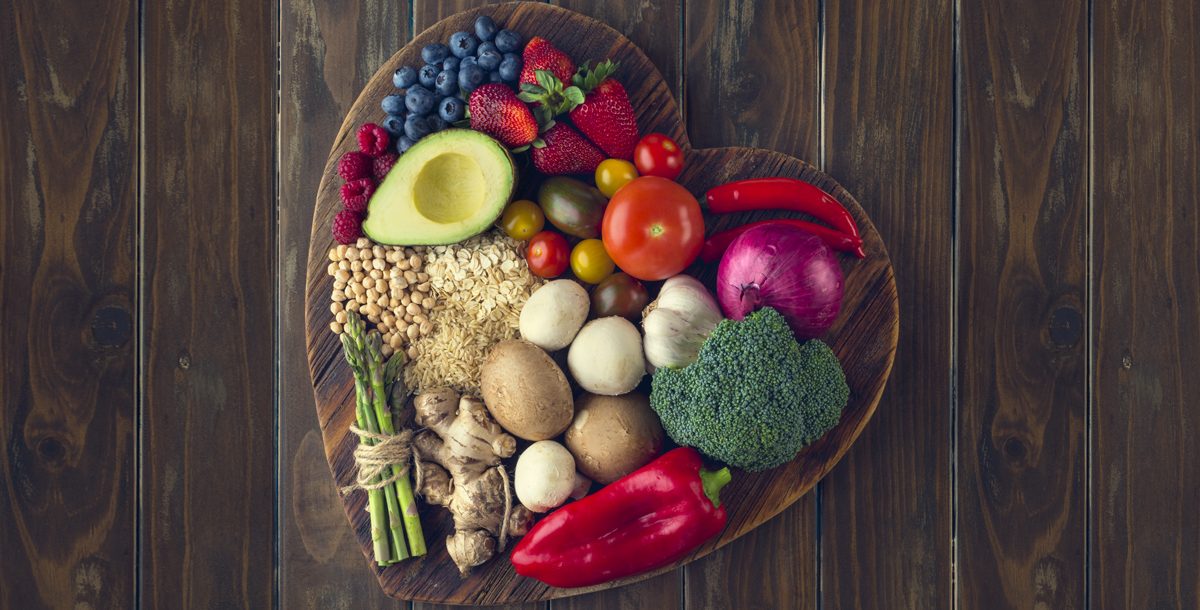Heart disease is the top cause of death in the United States. While you can’t always prevent heart disease, eating a heart-healthy diet is one of the best places to start.
Changing your diet isn’t always the easiest thing. However, doing so can lead to a long and healthy life. Use these tips to help yourself get started.
Add fruits and vegetables
Fresh or frozen fruits and vegetables are some of the best foods you can eat. They’re packed with vitamins, minerals and antioxidants. These substances are good for your heart and every other part of your body.
Aim for at least seven servings a day. Try to eat fruits and veggies that have a variety of colors. A medium piece of fruit usually equals one serving. A cup of fresh vegetables, or a half a cup of cooked vegetables, is also around one serving.
Trade white flour for whole grains
Instead of eating rice or pasta and breads made from white flour, opt for whole grains instead. Oats, quinoa, barley, wheat bread and brown rice are all whole grains and are good for your heart. They have fiber that helps improve your cholesterol levels and lowers your risk of heart disease. As an added bonus, they can also help prevent diabetes and cancer as well as maintain a healthy weight.
Eat healthy fats
Many people believe that all fat is bad for you. However, it turns out it just depends on what kind of fat you eat. Unhealthy fats, like saturated fats and trans fats, can increase your risk for heart attack and stroke. On the other hand, healthy fats may actually help lower your cholesterol.
Good fats include olive oil, nuts, nut oils, nut butters, avocados and fish that contain omega-3 fatty acids. These are a type of fat your body needs but can’t make on its own. So, it’s important to eat them.
Go for fiber
Make sure your daily diet contains plenty of fiber. It can help control your cholesterol and blood sugar, which is important for heart health. It also keeps your bowel movements regular. Whole grains, beans, nuts, fruits and vegetables are all wonderful sources of fiber. Aim for at least 25 grams a day.
Cut back on salt
One of the best things you can do for your heart is to reduce the amount of salt you eat. Otherwise, you may develop high blood pressure.
Most of the sodium in our diets comes from processed foods, like canned soups and frozen meals. It also comes from fast foods and pre-packaged snacks, like chips and cookies. Limit the processed foods you eat and try cooking with other spices for flavor.
Ditch the sugar
Next to salt, sugar may be one of the worst things you can eat for you heart. Sugar has little to no nutritional value and it’s packed with calories. Eating it too often can lead to weight gain, and maintaining a healthy weight is another key to having a healthy heart.
Choose protein wisely
Protein is an important part of a healthy diet, but you’ll need to choose the right protein if you want to eat a heart-healthy diet. Eggs, beans and legumes are all good sources. Lean meats like poultry without the skin are great options. Fish is also a great source of protein, especially cold-water fish that contains omega-3 fatty acids.
Cook more
No matter what you eat, try to cook more and eat out less. This helps you control your ingredients and your portions. You can experiment with different fruits and vegetables while substituting herbs and spices for salt and sugar.
If you have children, it’s a great way to teach them about eating a healthy diet. Even if you don’t have time to cook every night, start with two or three nights a week. Before you know it, you’ll enjoy eating at home as much as you do going out.
Learn about the cardiology services we provide at Bon Secours.





